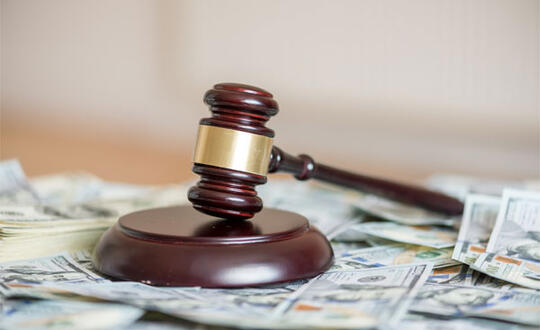FCC Proposes Record $5.1 Million Robocalling Fine
Sep 03 2021
The Federal Communications Commission recently proposed its largest ever robocall fine against John M. Burkman, Jacob Alexander Wohl, and J.M. Burkman & Associates LLC for apparently making more than 1,100 unlawful robocalls to wireless phones without prior express consent, in violation of the TCPA and the TRACED Act. The $5.1 million fine represents the first action where the FCC was not required to warn robocallers before robocall violations could be counted toward a proposed fine, consistent with Congress’s recent amendment of the TCPA.
The Telephone Robocall Abuse Criminal Enforcement and Deterrence (TRACED) Act amended the section of the TCPA that prohibits robocalling (47 U.S.C. § 227(b)) by expressly referencing civil monetary forfeitures the FCC may impose as a penalty for violations. Section 503(b) of the Act authorizes the Commission to impose a forfeiture against any entity that “willfully or repeatedly fail[s] to comply with any of the provisions of [the Act] or of any rule, regulation, or order issued by the Commission.” And Section 503(b)(2)(D) authorizes the Commission to assess a forfeiture of up to $20,731 for each violation.
Here, the FCC was alerted on September 15, 2020 that thousands of prerecorded voice message calls were apparently placed by Burkman and Wohl, lobbyists and political consultants based in Arlington, Virginia. After the Commission received multiple complaints about the calls, the Enforcement Bureau staff were able to trace the complaints to a list of calls from Burkman, Wohl, and Burkman & Associates on August 26 and September 14, 2020. Upon contacting those consumers, Bureau staff learned that the recorded messages told potential voters that if they voted by mail their “personal information will be part of a public database that will be used by police departments to track down old warrants and be used by credit card companies to collect outstanding debts.” None of the consumers the Bureau contacted stated that they consented to the calls. The Bureau and the Ohio Attorney General’s Office then collaborated to identify two dialing service providers that provided subpoena responses confirming the robocall campaigns and identifying the Burkman and Wohl as the clients who had hired them for this service.
Based on this alleged conduct, the Bureau proposed a fine of $5.1 million ($4,500 times 1,141 calls) and proposed to find Burkman, Wohl, and Burkman & Associates jointly and severally liable. The $4,500 penalty per call represents the largest ever per-call penalty under the TRACED Act since its adoption. Burkman and Wohl also face potential civil liability in related litigation currently pending in U.S. District Court for the Southern District of New York.
The FCC’s enforcement actions under the TRACED Act signal that the Commission will not hesitate to use its new powers to impose onerous fines. Businesses that engage in robocalling should therefore seek legal counsel to help develop and implement robocall mitigation policies and strategies.